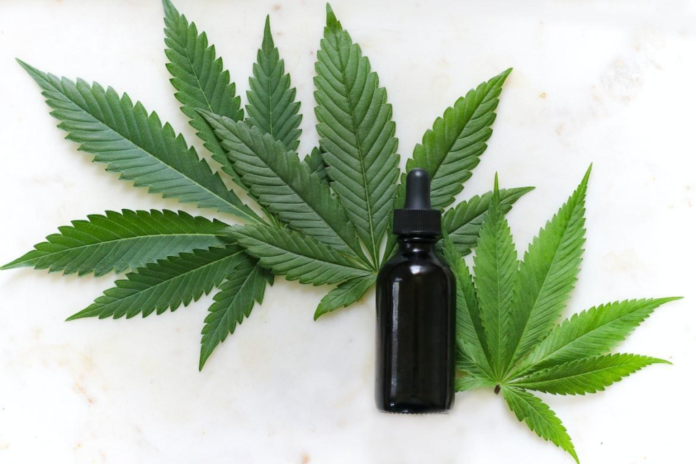Are you considering using cannabis for medical purposes? If so, then it’s important to understand the rules and regulations surrounding its use. Have you ever wondered who qualifies for medicinal cannabis and what steps need to be taken in order to gain access?
Knowing whether or not you could benefit from using marijuana medicinally can seem daunting, but we’re here to help relieve some of that stress by providing a comprehensive guide on how to know if you qualify for cannabis for medical purposes.
Image Source: https://unsplash.com/photos/b2haCjfk_cM
Understand the laws in your state
As cannabis continues to make strides towards legalization across the United States, it’s important for individuals seeking medical benefits from the plant to understand the laws in their state. While some states have legalized cannabis for medicinal use, others may only allow the use of CBD oil with a prescription.
It’s crucial to research and understand the specific regulations in your area, as some states have strict limitations on who can qualify for a medical marijuana card and which medical conditions can be treated with cannabis.
By staying informed and aware of your state’s laws, you can make informed decisions about the best way to access cannabis for your medical needs. For example, a North Carolina marijuana card is required if you’re looking to buy medicinal cannabis products in that state. Similarly, if you live in Maryland, the state has set up a special medical cannabis commission to oversee medicinal marijuana use.
Make an appointment with a licensed professional
It’s never easy asking for help when it comes to our health, but sometimes it’s necessary. If you’re experiencing symptoms that could be related to one of the qualifying conditions for medical marijuana, it may be time to make an appointment with a licensed medical professional.
These experts have the training and experience necessary to help determine whether or not you qualify for this alternative medical treatment. It’s important to remember that they are there to help and guide you through the process, and with their guidance, you could find relief from your symptoms and improve your overall quality of life.
Don’t hesitate to seek out the help you need to feel your best. Additionally, some states require a doctor’s recommendation in order for you to be eligible for a medical marijuana card. Keep in mind that only qualified healthcare providers can provide this type of paperwork.
Different types of cannabis products
As more and more states and countries legalize the use of medical cannabis, patients are curious about the different forms in which it can be consumed. While traditional smoking is an option, many people are looking for more discreet and convenient ways to incorporate cannabis into their treatment plan.
This is where oils and edibles come in. Cannabis oils can be ingested orally or used topically, providing targeted and long-lasting relief. Meanwhile, edibles offer a tasty and easy-to-dose alternative to smoking, perfect for patients who prefer not to inhale.
Whether you’re looking for a way to manage pain, alleviate anxiety, or simply relax, there’s a cannabis product out there that can help. Not only that, but with the increasing availability of these products across the country, you may even be able to purchase them in your local dispensary.
Research the potential side effects and risks
Cannabis has been used for medical purposes for centuries, and as its legalization becomes more widespread, so does its use for a variety of ailments. However, as with any medication, cannabis use carries potential side effects and risks that should not be taken lightly.
Some of the typical side effects include dizziness, dry mouth, and impaired motor skills, while long-term use has been linked to memory and learning problems. Additionally, individuals who use cannabis may be at risk of developing addiction or mental health issues.
If you are considering using cannabis for medical purposes, it is essential to speak with a qualified healthcare provider to weigh the benefits against the potential risks and side effects. Plus, it’s always important to consider the legalities of your state or country before beginning a medical marijuana program.
Speak to a healthcare provider
Healthcare can be complex and overwhelming at times, with many different options and treatments to consider. It’s normal to have questions and concerns about your health, and that’s why it’s important to speak to a healthcare provider who can help guide you through the process.
Whether you’re worried about a current health issue or just looking for general advice on how to stay healthy, a healthcare provider can provide you with the information and support you need. Don’t hesitate to reach out and start a conversation – your health and well-being are worth it!
In the case of obtaining medical marijuana, it is critical to consult with a qualified healthcare provider. Not only can they provide guidance and support throughout the process, but they can also help determine whether this treatment option is right for you. With their expertise and understanding of your individual case, you can make the best possible decision when it comes to your health and well-being.
Gather any necessary documents
First of all, you will need to be sure that medical marijuana is legal in your state or country. Once you’ve confirmed this, it’s time to gather any necessary documents for your application. This can include things such as proof of identity, medical records, and a doctor’s recommendation.
It is important to note that each state has its own set of requirements for obtaining medical marijuana. These can include age restrictions, the type of condition you have, and the length of time your doctor has been treating you. Make sure to read up on all applicable regulations before submitting your application.

Image Source: https://unsplash.com/photos/KdC5agsz6ik
In conclusion, cannabis for medical purposes can be beneficial to those who qualify by helping to manage their symptoms. However, it’s important to understand the laws, research potential side effects and risks, and discuss with a healthcare provider before deciding if medical cannabis is right for you.
Those interested in using cannabis for medical purposes should make an appointment with a licensed practitioner who can determine if they meet the qualifications under their state’s law, as well as provide advice on dosage amounts and cannabis products available.











